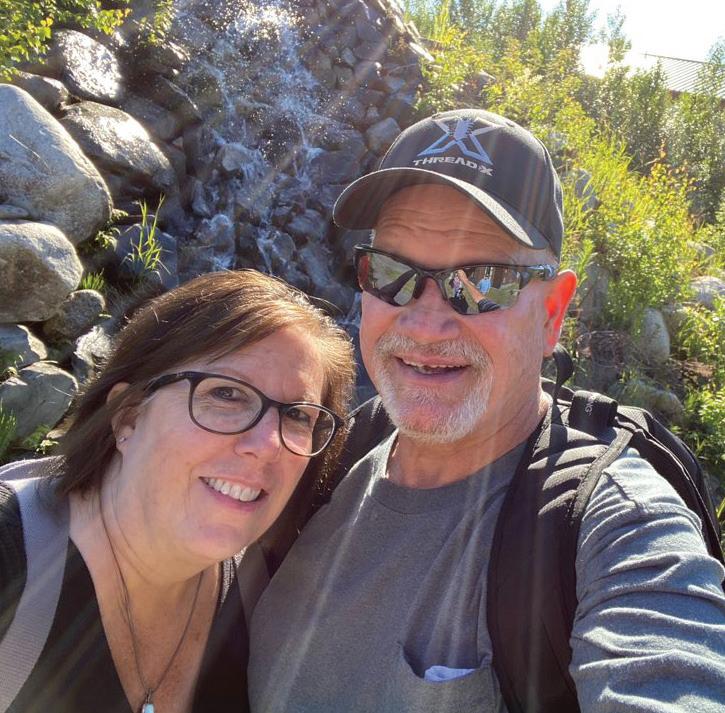
3 minute read
About Concussions
Hit Your Head?
What You Need to Know About Concussions
Dr. Ben Stephenson has seen a lot of concussions . As a primary-care physician and Chief of Staff at Haxtun Health, he cares for patients in the clinic, emergency room and hospital . So when a patient comes in to be checked out after experiencing a head injury, he’s knowledgeable at spotting the symptoms of concussion and helping patients take steps to heal . “Normally your brain sort of floats inside your skull,” Dr . Stephenson said . “A concussion is what happens when your brain bounces up against your skull . It causes bruising or inflammation of the brain . The nerves stretch, and they don’t work as well for a while .” Concussions can be caused either by your head hitting something—an object, another person, the ground— or by whiplash, which is when your head is suddenly yanked to one side in, for instance, a car accident . Any impact or motion that may have caused your brain to crash into your skull can result in a concussion . “Some people think that if you didn’t lose consciousness, you can’t have a concussion,” Dr . Stephenson said . “But that’s not true . Only a very small percentage of people with concussions have gotten knocked out .”
What To Do
If you’ve hit your head or experienced whiplash and are feeling any of the above symptoms, go to the clinic as soon as you can to get checked out . Try to get evaluated within 24 hours . Our Haxtun Health providers can take care of you right in our clinic,
Monday through Saturday . There is no need to go to the emergency room unless it is Sunday or after hours, according to Dr . Stephenson . If your symptoms are more severe, however, and include things like balance problems, speech problems, projectile vomiting, serious confusion or, of course, loss of consciousness, it’s time to call 911 or go to the emergency room . Sometimes head trauma can cause more serious—and even life-threatening—brain injuries that need immediate evaluation and treatment . “If you have any symptoms that clue you in that your brain isn’t working well, that means the engine is Concussion Symptoms running in the red,” said Dr . A concussion is diagnosed based Stephenson . on symptoms, not imaging . Doctors can’t see a concussion on a CT Healing Concussions scan or MRI . But patients do feel If you have a concussion, it’s concussions . Dr . Stephenson said the helpful to rest your brain for most common concussion symptoms a while . That’s how it heals— he sees include: through rest and TLC . • Headaches “Normal daily activity is fine,” Dr . Stephenson said . “Light, • Neck pain non-jarring exercise is OK too .” • Cognitive problems—difficulty If you’re not feeling well, get concentrating, feeling in a fog extra sleep . Minimize the use • Emotional symptoms—anxiety, of screens such as your phone irritability and computer . Cut back on • Blurred vision work and school . Avoid any activities that cause your • Dizziness symptoms to worsen . And • Nausea whatever you do, don’t put • Fatigue and feeling the need to yourself in a position where sleep a lot you might reinjure your brain before it heals . “Football players, for example,” Dr . Stephenson said, “if they start playing again before their concussion has healed completely, they can develop more severe brain injuries, which can lead to permanent damage .” There’s no set timeline for concussion healing, but it typically takes anywhere from one to three weeks, according to Dr . Stephenson . When you’re completely symptom-free as you go about your daily life, you’ll know your brain is back to normal .




